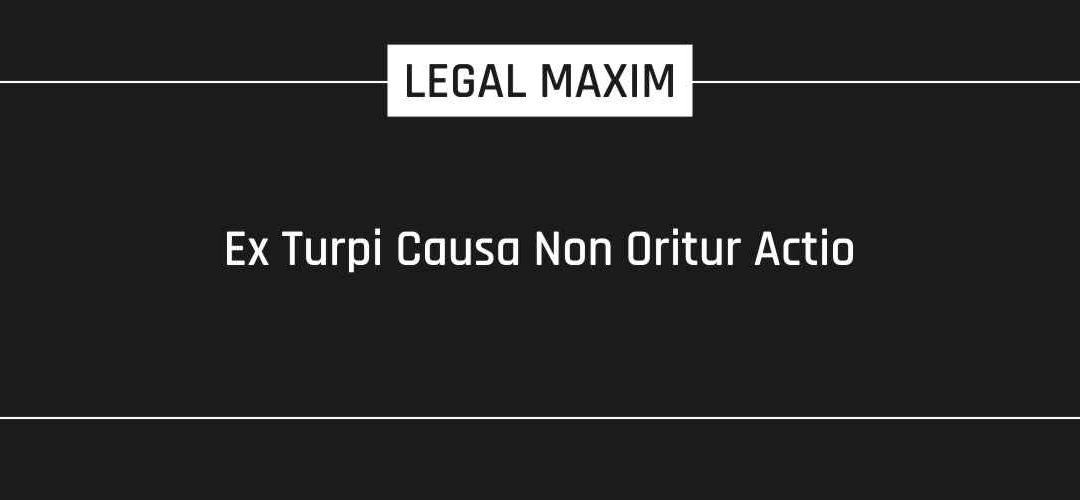Literal Meaning
No action arises from an immoral cause or base consideration.
Origin
Latin
Explanation
A person is not allowed to claim damages from the defendant if the plaintiff himself is involved or has committed an illegal act. The legal maxim Ex Turpi Causa Non Oritur Actio means No action can arise from our illegal act. This particular maxim is used for defense which grants relief or exempts the defendant from his liability even though he is guilty of an unlawful act, because of the plaintiff’s illegal act. This is also known as ‘plaintiff a wrongdoer’ defense. It is not the defense in favor of the defendant but instead, it is applied to prevent a plaintiff from taking advantage of the illegal act committed by him.
The courts shall refuse to enforce an illegal contract or an illegal transaction or allow itself to be made the instrument of enforcing obligations alleged to arise out of a contract, if the illegality has been brought to the notice of the court, and if the person invoking the aid of the court is himself implicated in the illegality.
Illustration
If A to commit burglary, enters B’s house. B on finding A robbing shoots him with a gun causing his death. In this case, A’s wife cannot claim for any damages even though B has used more than reasonable force since A was also involved in an illegal act.
A and B agreed to kill C and rob his car. However, both of them while escaping in C’s car after killing him, met with an accident due to the negligence of B (who drove the car) and A was severely injured. Here even though B is guilty of negligence A cannot claim any damages because he suffered this injury as a result of being involved in an unlawful act.
Case Law
In Kamarbai And Ors. vs Badrinarayan, refereeing to the maxim ‘Ex Turpi Causa Non Oritur Actio’ the Bombay High Court held that the plaintiff not only must be prepared now to do what is right and fair, but also must show that his past record in the transaction is clean; for ‘he who has committed inequity, shall not have Equity.’
In I.T.C. Limited vs George Joseph Fernandes, the Supreme Court held that it is a settled principle that one who knowingly enters into a contract with an improper object cannot enforce his rights thereunder.
In Pranballav Saha And Anr. vs Sm. Tulsibala Dassi And Anr., the Calcutta High Court held that “Once the court finds that the plaintiff is seeking its assistance to enable him to get the benefit of what is a fraud, the court refuses to assist him. If, as a result of such refusal, the defendant is left in possession of some advantage derived from his own fraud, that is not due to any action on the part of the court.”
In R. Venkata Subbu And Ors. vs The Director Of Enforcement, the Madras High Court held that “the maxim ‘Ex turpi causa non oritur actio’ does not mean that every improper conduct of the applicant disentitles him to equitable relief. The maxim may be invoked where the conduct complained of is unfair and unjust concerning the subject-matter of the litigation, and the inquiry sued for.”
